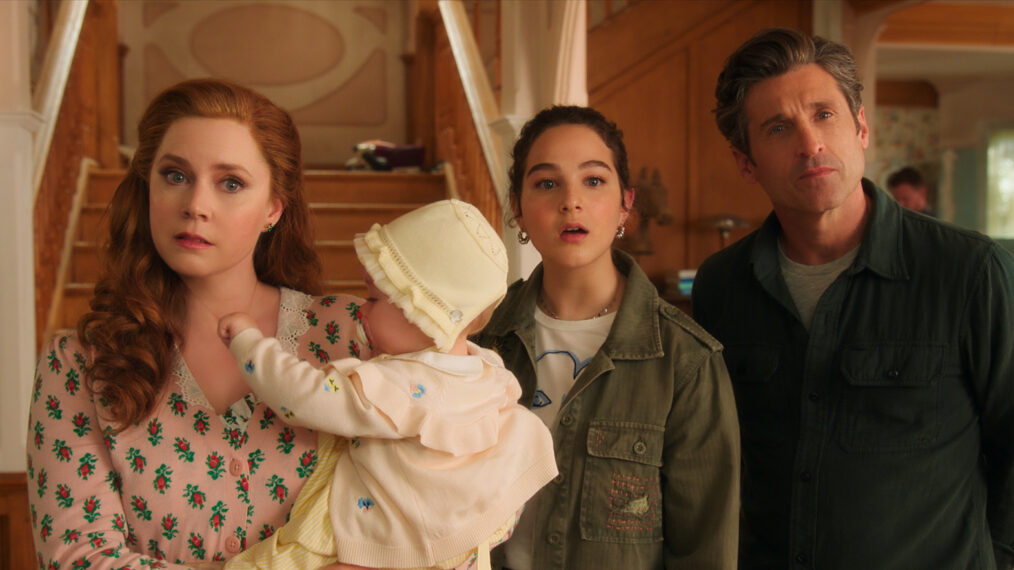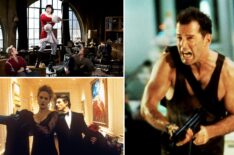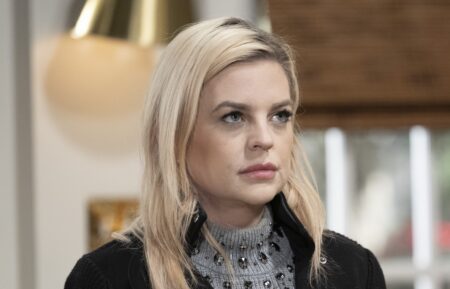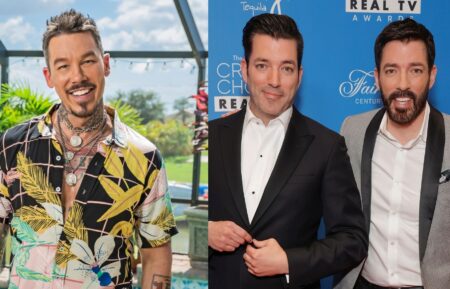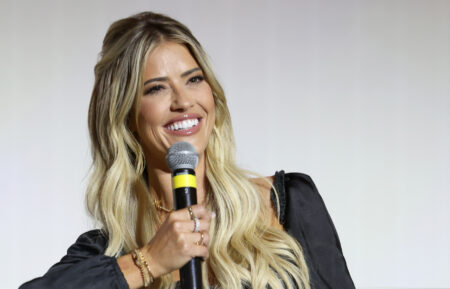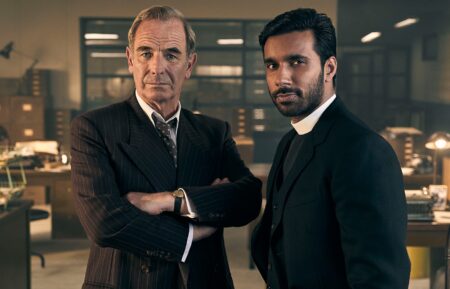‘Which Way to the Stage?’: Idina Menzel Shares How Jonathan Larson Still Affects Her Performances
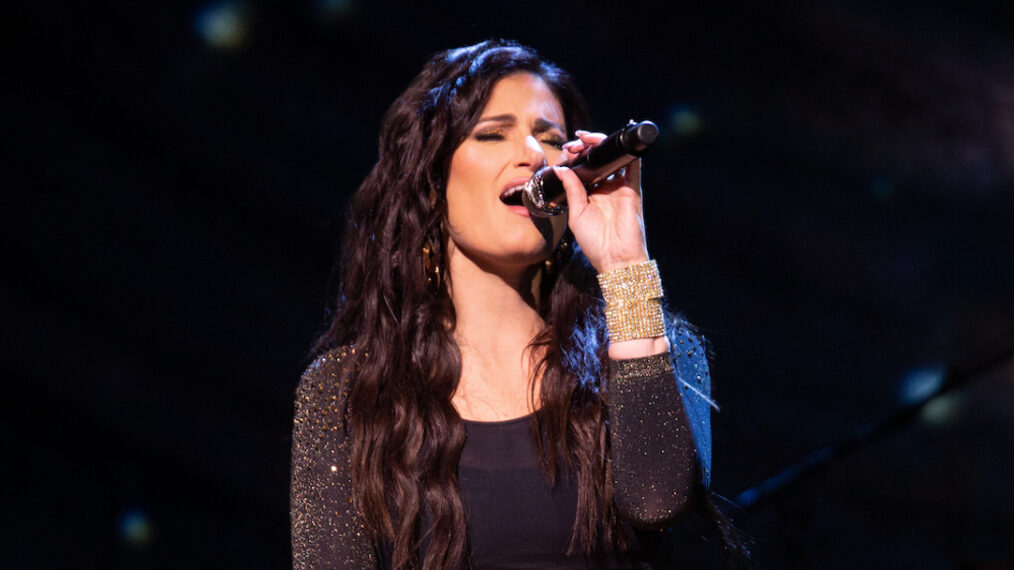
Q&A
Anyone who doesn’t see Idina Menzel as among our most noteworthy modern voices may be changed for good by this ride through her 2018 nationwide tour. In Idina Menzel: Which Way to the Stage?, premiering December 9 on Disney+, the Glee co-star and Wicked Tony winner — and the voice of Elsa in Disney’s Frozen — performs alongside tourmate Josh Groban, culminating in her dream-come-true show at New York City’s Madison Square Garden.
Beyond the crowd-pleasing set list, the doc pairs performance footage with Menzel reflecting on poignant moments in her life, from her Long Island roots to a recent IVF journey with her husband, actor Aaron Lohr. But the real showstoppers are the beautifully rendered tunes, including “No Day but Today” from Rent, captured in Pittsburgh days after the 2018 Tree of Life synagogue shooting (Menzel would later record an original song for the HBO documentary). Combine that with the other heart-tugging tracks here, and, well, good luck letting it go.
Which Way to the Stage? was a passion project for the Disenchanted star. She wanted to document the milestone moment in her life while showcasing the experiences that led her there. Son Walker Diggs (shared with ex-husband Taye Diggs) looms large in the flick, always being Menzel’s emotional anchor and one-half of the center of all her business decisions. The other half is the 51-year-old (in her late 40s when the doc was filmed) honoring her commitment to seeing her dreams realized.
The film is nonlinear, with director and editor Anne McCabe carefully pairing songs from her tour set list with fitting personal stories. Fans will walk away, having seen the most personal reveals Menzel has made thus far. Here, the star breaks down the emotional meaning of Which Way to the Stage? to TV Insider.
What was your favorite song from the tour setlist?
Idina Menzel: I know people always want you to pick one song, but honestly, those things fluctuate from show to show. Because depending on what you’re experiencing on that particular day, certain songs have different impacts. They speak to you differently.
Maybe it’s being a creature of the theater, but I’m always looking for something new in the show. That’s what keeps you alive and in the moment is always trying to find, whether it’s melodically or lyrically, [how] they inform who you are on stage. If my life is complicated before I get on stage, maybe “Defying Gravity” is a song that I need to hear, or sometimes that live version of “I Melt With You” that rocks out at the end [helps] get that out of my system.
You’re known for tackling incredibly difficult songs. [Wicked creator] Stephen Schwartz and Alan Menken gave you another one in Disenchanted, which I loved, but I have to ask: do you ever wish you’d get to sing an easier one?
The more acrobatic songs [laughs]. No. Look, I’m not going to look a gift horse in the mouth. I love doing [the acrobatic songs], but I also love doing more intimate songs as well.
Part of what you hear in the documentary is that I just want people to see the versatility. Also, what I’ve learned even in those huge, acrobatic songs is that there are nights where I can’t necessarily do them as well as other nights. Depending on how much sleep I get, or I’m flying across the country to see my kid, or I’m getting a cold, or I’m shooting myself up with hormones to try to have a baby — it’s not always going to be perfect. And yet some of those nights where it’s not perfect have been some of my best nights where I’ve discovered something about it and realized, “Oh, it’s not always the high notes that people are necessarily responding to.” There’s something about the way I’m allowing people into my soul and who I am, and the way I tell the story.
For a long time, it felt like, “Oh my gosh, if I can’t hit that note, then people aren’t gonna think I’m talented.” What I’ve really learned through the years is that it’s more than that. It’s my ability to make myself vulnerable to tell the story.
I found myself the most tearful during the performance of “Extraordinary” [one of Menzel’s original songs written about her husband, Lohr].
Oh, really? That’s nice! What was it that you connected to?
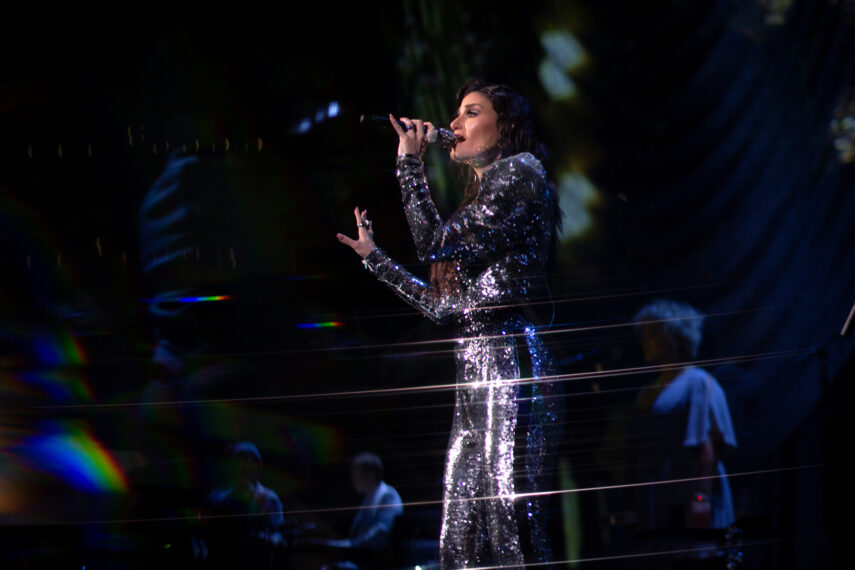
Eric Maldin/Walkman Productions Inc.
Well, you know music always hits us differently at different points in our lives. Personally, the lyrics of that song hit me hard that day, as well as just being such a fan of yours. It was also paired with how [McCabe] weaved in your personal stories with the different songs from the setlist. It was really evocative for me. How do you feel about the editing of the documentary?
Oh my God, I’m so proud of it. We had the choice to be more linear in our storytelling and more predictable or to go in and out of the songs through different experiences and trust that the audience would go with us. This way, you can see how like I was saying, every song can have different impacts depending on how you are looking at it from that perspective on that day.
You see my husband bonding in this beautiful way with my son while I’m away singing, and you see that even if [Walker’s] dad is on a job as well, he’s got this other incredible role model in my husband. You see the way the rehearsals go so that you can see how the song develops and the creative process. Interweaving all of those different elements gives the layers. I’m thankful that connected with you because that was important to me.
I talk in the documentary about how versatility can be your curse. What I’ve learned through the years is…as long as what’s happening now encapsulates who I am as a person and an artist, that’s what gives it the common denominator. The genre is me. For me, when I surrender to that and stop trying to say, “Well, how am I perceived,” and “I wanna do this and that,” [I realize] they’re all part of me. They’re all OK, and they’re not confusing anyone because they’re my life experiences.
I really liked how “No Day But Today” [from Rent] does that because that is a song I do every night, no matter where I go. If I’m singing for 30 people at a fundraiser or if I’m on a huge arena stage, that’s my sort of touch point, my meditation in a way. It grounds me; it brings me back to where I started. But it always has a different meaning. And that particular song, you could see how it did that, how it evolved, and how all of a sudden we’re in Pittsburgh, and this horrible event occurs [the Tree of Life synagogue shooting]. “No Day But Today” can morph and mold itself to whatever the experience is and whatever people need to hear in that given moment.
Did you consider any other song for that moment in Pittsburgh? Or was that just the most fitting song for it?
I overthink everything. I don’t want anything to be taken out of context or to be insensitive or tone-deaf to something. I probably thought about it a lot and then felt that that was the right choice.
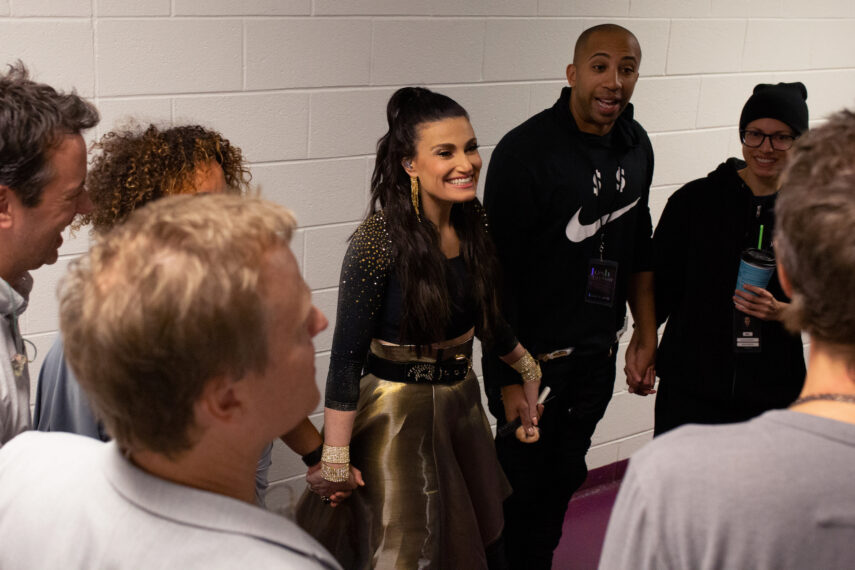
Eric Maldin/Walkman Productions Inc.
We see the moment in the documentary, but I’d love to hear you describe what it felt like to walk on stage at Madison Square Garden for the first time.
It was very moving for me. It’s funny, almost. The documentary went through a lot of adversity getting made. We lost our funding at one point. Getting people there to actually document it, all of a sudden, it was going to fall apart. I really think that my experience with Rent, and I say this a lot, but I really think that having lost Jonathan Larson during that experience set a precedent and laid a groundwork for how I wanted to live my life, professional and personal, [and] really take in a moment.
No day but today. That sounds cliché at this point, but you know, you’re a young, 20-something, budding performer, and this compatriot of yours all of a sudden is gone. It does something to you. It makes you really appreciate what you have. And so, standing up there, I just looked around. I took it in. I didn’t let my nerves overcome me and not allow me to be in my body.
Idina Menzel: Which Way to the Stage?, Documentary Film Premiere, Friday, December 9, Disney+

